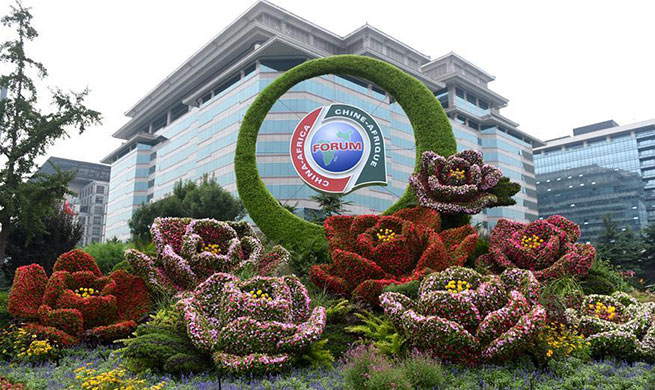BERLIN, Aug. 29 (Xinhua) -- Real incomes have been nearly stagnant for many Germans in the second quarter (Q2) of 2018 as average collective wages only rose slightly faster than consumer prices, figures published on Wednesday by the Federal Statistical Office showed.
According to the Wiesbaden-based government agency, so-called tariff payments increased by an annual 2.2 percent between April and June compared to a 2.0-percent inflation rate during the same period. Collective wages are widespread and legally binding in Germany as part of the country's "social partnership" model.
Tariff payments form part of a post-war political settlement between employer and employee representatives, which granted workers significant rights with regards to their labor conditions and their role in the cooperative management of companies.
Earlier, several experts had predicted that collective wages would continue to rise significantly in the course of the year due to the recent conclusion of widely-publicized negotiations and related "warning strikes" in the metal, electronics and public sectors.
The Office noted, however, that the findings were likely to understate actual collective wage rises as a recent settlement between public-sector employers and employees in April had not yet been taken into account.
Collective wages in construction grew at the fastest rate and well ahead of inflation (5.1 percent), followed by the manufacturing industry (3.7 percent), retail and gastronomy (3.3 percent). By contrast, employees in the finance and insurance industry, and art, entertainment and recreation sector witnessed declines in their real wages.
Speaking to Xinhua on Wednesday, Oliver Holtemoeller, head of the department macroeconomics and vice president of the Halle Institute for Economic Research (IWH), argued that the official data showcased what could only be considered a moderate overall increase in real wages.
"We would have expected higher settlements in light of the higher inflation rate and the favorable economic development," Hoeltemoeller said. Due to increasingly severe labor shortages in Germany, the IWH expert predicted that collective wages would grow at an average rate between 2.5 percent and 3.0 percent in the course of 2018.
Rising wages have repeatedly been cited by many government agencies and private institutes as an important pillar of the lasting momentum of the German economy. Growing consumer spending is hereby seen to have offset a weaker development of the highly export-oriented manufacturing industry due to global trade tensions.?











